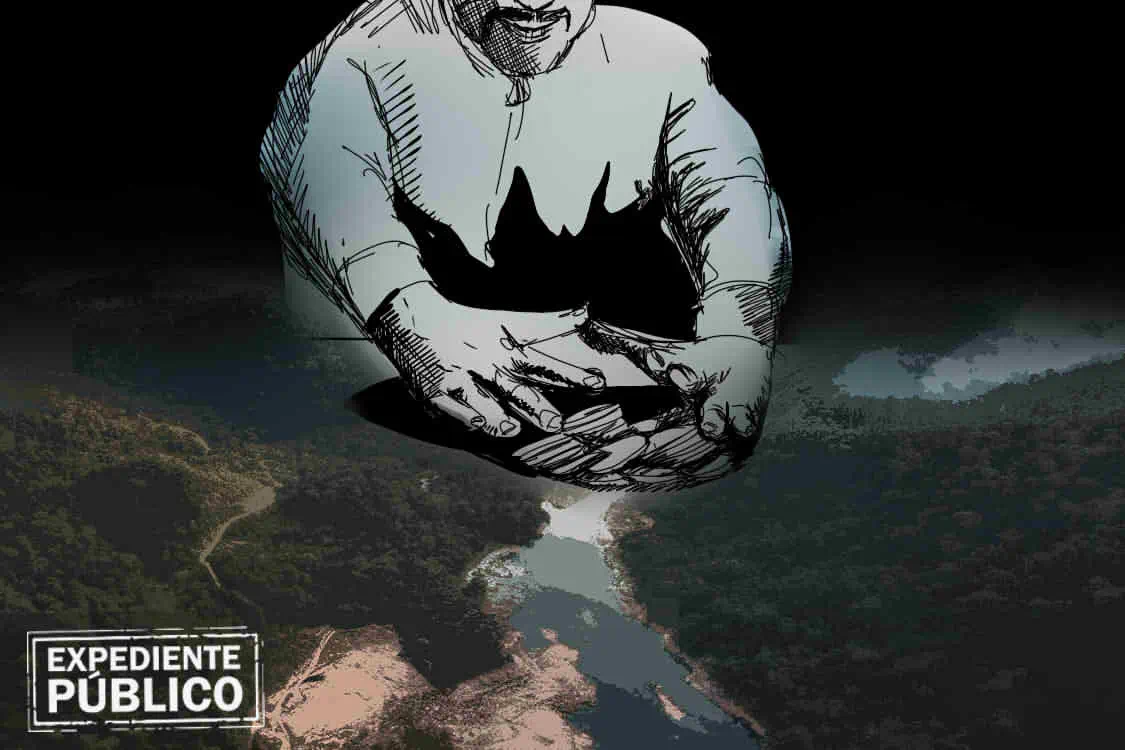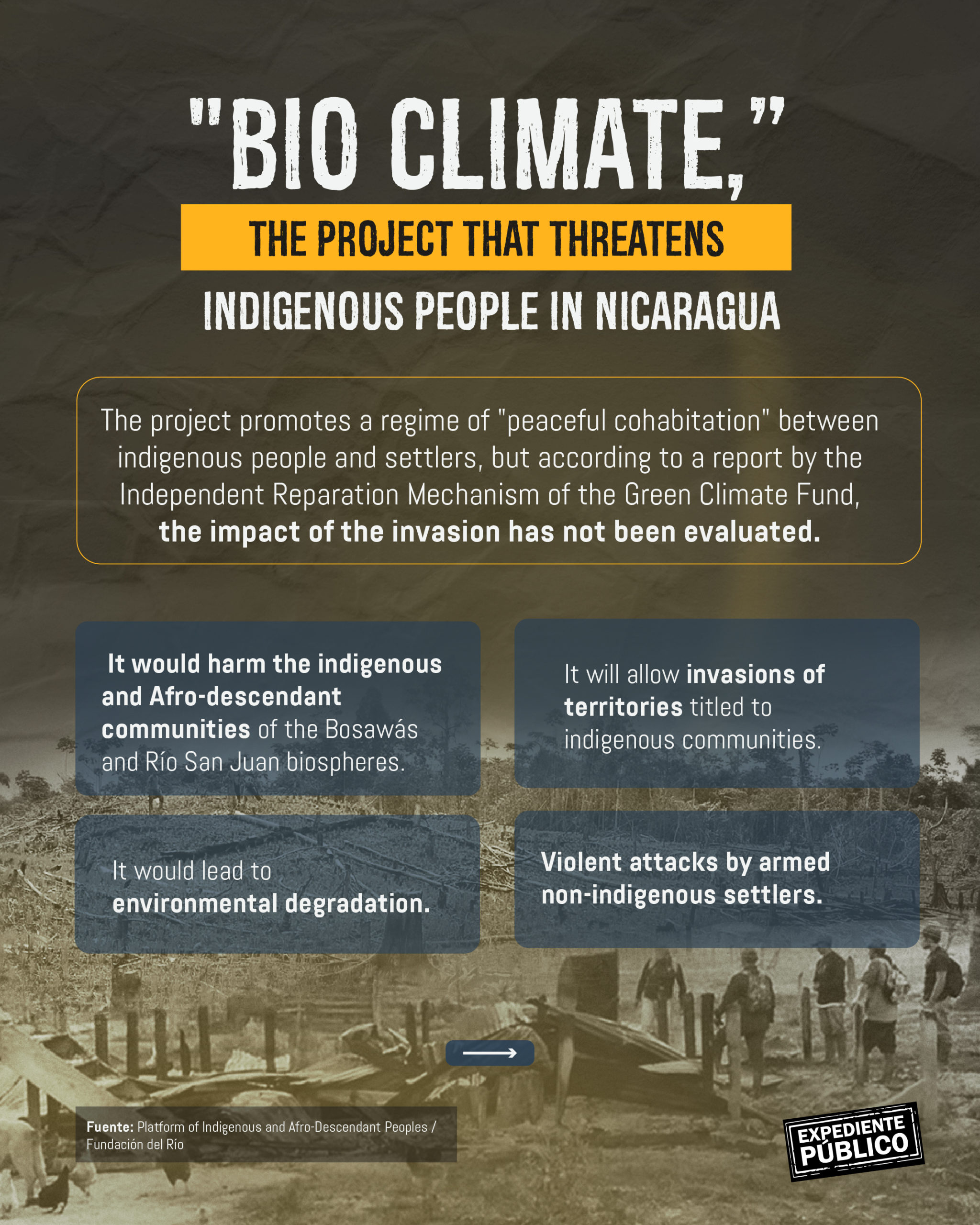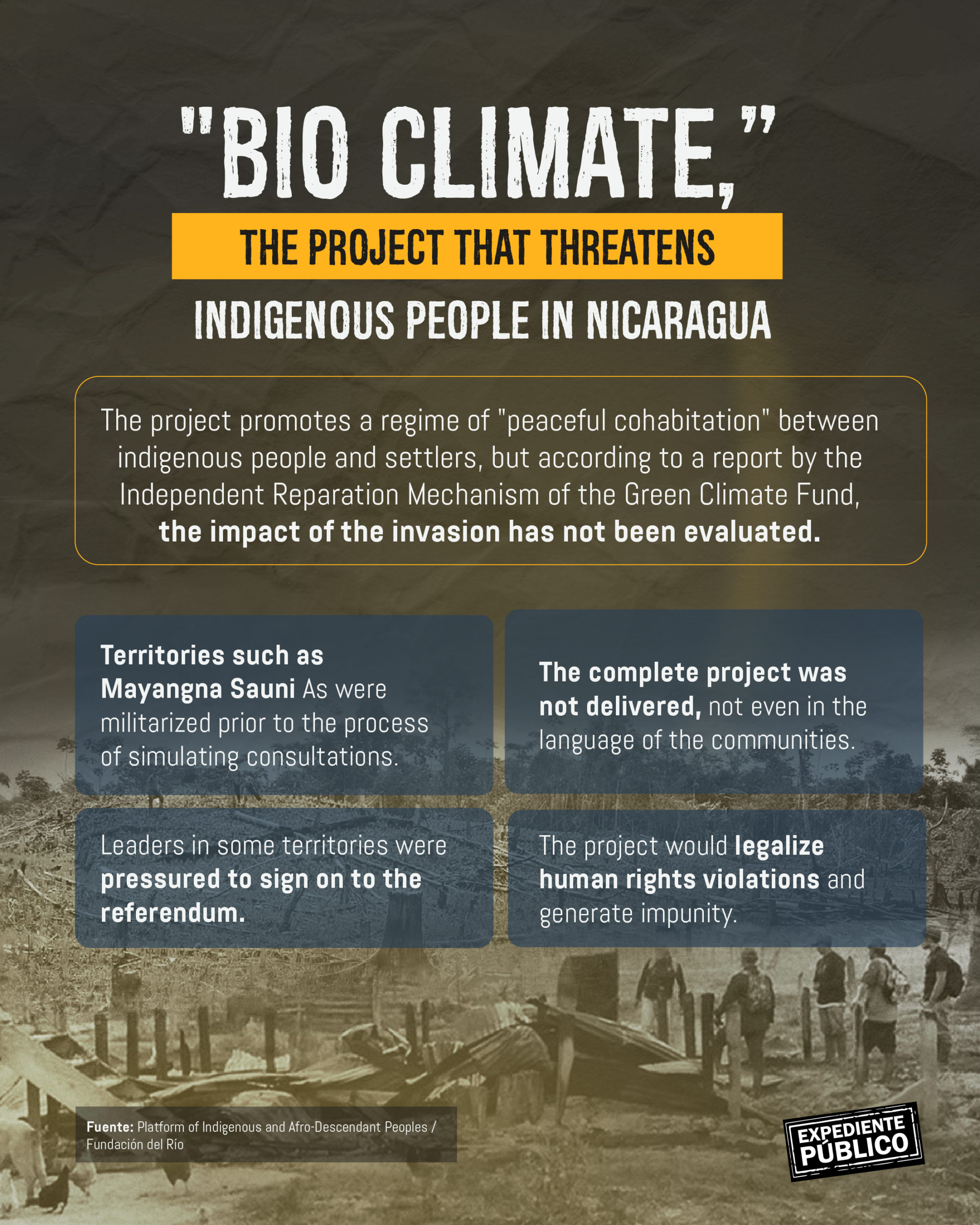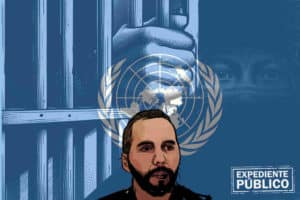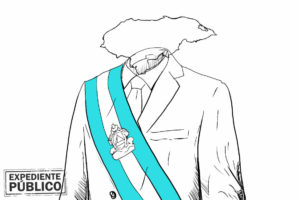*The regime of Daniel Ortega and Rosario Murillo has run out of time to fix the mistakes they would need to correct to comply with Bio-CLIMA project conditions. The Green Climate Fund Board keeps it going.
**Defenders of Indigenous and Afro-descendant rights deny implementation of the project, because it would imply agreeing to a plan of peaceful cohabitation with the Colonos.
***The regime desperately seeks access to the Bio-CLIMA Project’s US$116.6 million.
Expediente Público
The Colonos of Nicaragua are fellow Nicaraguans, mostly mestizos, who have long been pushing into and invading indigenous lands. On the night of August 23, 2021, the indigenous residents of Kiwakumbaih Mountain in the Mayangna Sauni As territory were attacked by armed Colonos who murdered 11 of them.
One victim was raped repeatedly before she died and her leg was mutilated. Another woman who survived the attack was also sexually assaulted several times by the attackers and forced to witness her husband’s murder.
This armed attack is just one of many recorded in recent years. It took place only nine months after the Bio-CLIMA project received approval from the Green Climate Fund Board on November 13, 2020.
Subscribe to the Public Record newsletter and receive more information.
“No Mayangna should come here or they will be killed,” was one of various messages sent to the indigenous community by the Colonos, as reported at the time by the Center for Legal Assistance to Indigenous Peoples (CALPI in Spanish).
The attacks have forced more than a thousand people to leave their home communities, and defenders of indigenous and Afro-descendant peoples fear that the project will increase violence perpetrated by armed Colonos.
The Indigenous and Afro-descendant territories of Nicaragua are insecure, but this fact was ignored by the Central American Bank for Economic Integration (CABEI) when it gave the regime of Daniel Ortega and Rosario Murillo access to a fund of US$116.6 million, whose disbursements have been frozen.
In December 2020, CABEI approved US$84.0 million for Nicaragua to carry out the Bio-CLIMA Project.
Bio-CLIMA proposes “cohabitation”
For environmentalist Amaru Ruiz, director of Fundación del Río, climate financing projects should not violate human rights altogether.
“They have to comply with certain international guarantees and we are looking for an example that creates a precedent for development cooperation to establish conditions for the financing granted to the Ortega-Murillo regime,” Ruiz told Expediente Público.
On August 31, 2022, the Independent Redress Mechanism (IRM) of the Green Climate Fund concluded that the Bio-CLMA project would legitimize the Colonos’ invasion.
Read more: Hunger, censorship, and neglect are rife in the Nicaraguan Caribbean region
The project, according to a complaint reported to the IRM, would support the continuation of the “historical colonization” of indigenous lands by these groups.
The regime’s “cohabitation” strategy between native peoples and Colonos promotes the “exclusion of indigenous peoples” and means they would “lose the use of the natural resources on those lands.”
Project approved
In June 2021, a complaint related to the project “Bio-CLIMA: Integrated climate action to reduce deforestation and strengthen resilience in the Bosawás and Río San Juan biospheres” was made to the IRM.
The complainants claimed that there had been no adequate consultation and that implementing the project would cause harm to Indigenous and Afro-descendant communities.
Moreover, the initiative would increase violence by armed Colonos and lead to environmental degradation.
The IRM stated that the peaceful cohabitation regime agreements should have been disclosed and discussed with the indigenous communities.
This initiative is financed by the Green Climate Fund (GFC), which is providing US$64.1 million, and the Central American Bank for Economic Integration (CABEI), which is providing a loan of US$44.2 million.
The GCF is a global fund created in 2010 under the UN Framework Convention on Climate Change.
The violence spreads
On March 11, 2023, a new massacre was committed in the Mayangna Sauni As territory in Nicaragua.
At least 60 armed Colonos entered the communities of Wilú, Musawas and Sabakitang, leaving five people dead and two injured. They burned the houses in Wilú, and about 80 families from the three communities were forced to flee.
As a result of these cycles of violence, killings, threats, and harassment perpetrated by the Colonos, on October 14, 2015, the indigenous Miskito communities of the Northern Caribbean were granted precautionary measures by the Inter-American Commission on Human Rights (IACHR).
Protective measures
On September 1, 2016, the Inter-American Court of Human Rights (IACHR) ordered that provisional measures be granted in favor of the Miskito communities of Klisnak, Wisconsin, Wiwinak, San Jerónimo and Francia Sirpi.
Two months later, on November 23, the measures were extended to also protect the community of Esperanza Rio Coco.
In the period from 2011 to 2020, at least 49 Miskito indigenous people were murdered, 49 injured, and 46 kidnapped, and four people are currently still missing according to the IRM report.
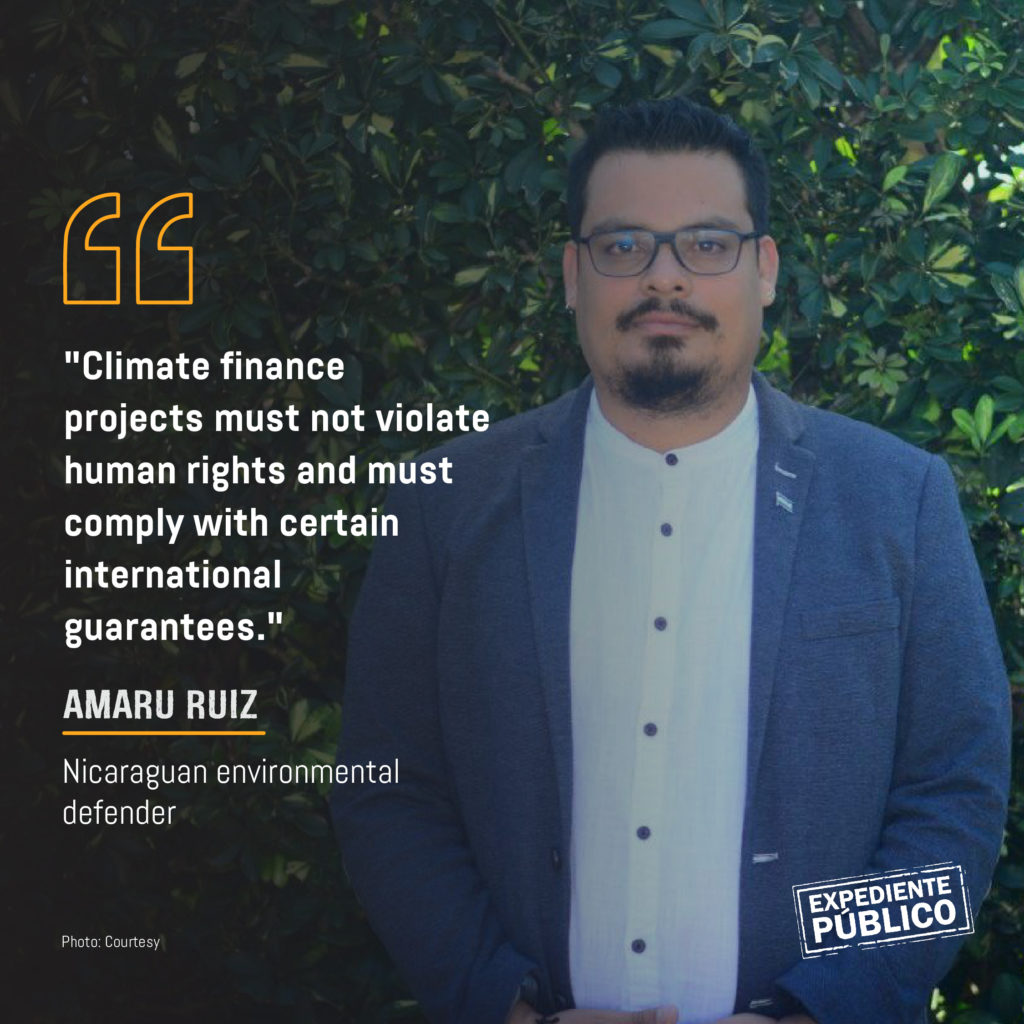
The violence in these territories is mainly sustained by the relentless advance of the agriculture/forest frontier in the indigenous territories, and the extractivist policy, says Camila Ormar, a lawyer at the Center for Justice and International Law (Cejil in Spanish).
“All this takes place without the prior informed freely-given consent of the communities,” Omar says.
Regime goes after natural resources
The evidence collected by the IRM during its investigation suggests that the pattern of violent attacks, at least those that include loss of life, are concentrated in the Northern Caribbean Coast Autonomous Region (RACCN in Spanish), especially in the Mayangna and Miskitu territories.
‘Salomón’ is a Miskito indigenous person who fled to Costa Rica in 2022 after learning that there was an arrest warrant out against him.
The displaced Indigenous believe that the regime is seeking to appropriate the natural resources in their territories “in order to commercialize them.”
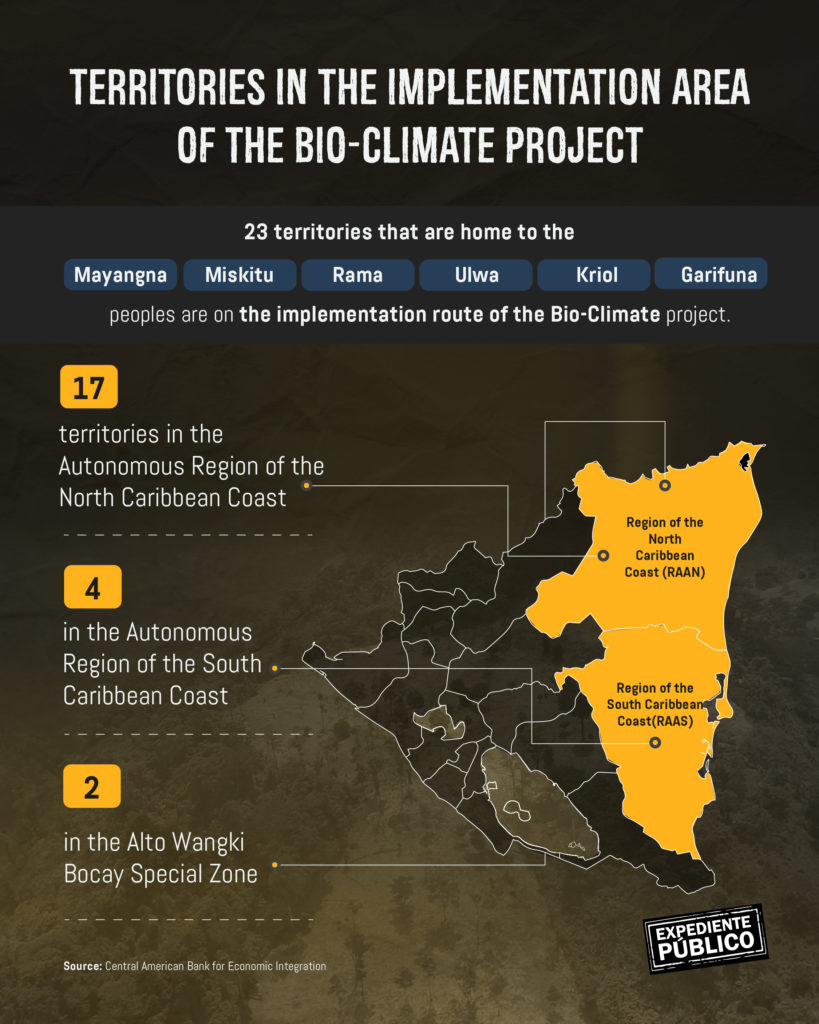
“It’s not only about marketing these precious trees, but also about introducing livestock and seeking total control of the areas within the Miskito and Mayangna peoples’ territory for mining,” ‘Salomón’ says.
Fundación del Río accused the United Nations Office for Project Services (UNOPS) of being “used” by the regime to endorse the Bio-CLIMA project’s consultation process.
“What they have told us so far is that they do not want to cut financial support because it has an impact on people; what we are telling them is to at least set conditions,” Ruiz argues.
Further reading: Comunitarios temen que nuevo puente en el Caribe de Nicaragua acelere el saqueo de recursos naturales [Communities fear new bridge in Nicaraguan Caribbean region will accelerate plundering of natural resources]
Environmentalist Ruiz believes that “independent third parties” could supervise the process and ensure that these resources reach the communities while complying with “conditions that respect human rights and territorial rights.”
Manipulated consultations
The Bio-CLIMA project is meant to be implemented in a region that includes 15 municipalities (county equivalents) and 23 indigenous and Afro-descendant territories that are home to the Mayangna, Miskitu, Rama, Ulwa, Kriol and Garífuna peoples.
According to the regime, it would contribute to reducing deforestation and strengthening resilience in the Bosawás and Río San Juan Biosphere Reserves.
After the Green Climate Fund Board ruled on July 13, 2023 that it “failed to comply with the existing policies and procedures,” they stated that no further disbursements would be made.
The regime and the CABEI tried to correct their errors that had covered up the reality experienced by the residents of these areas.
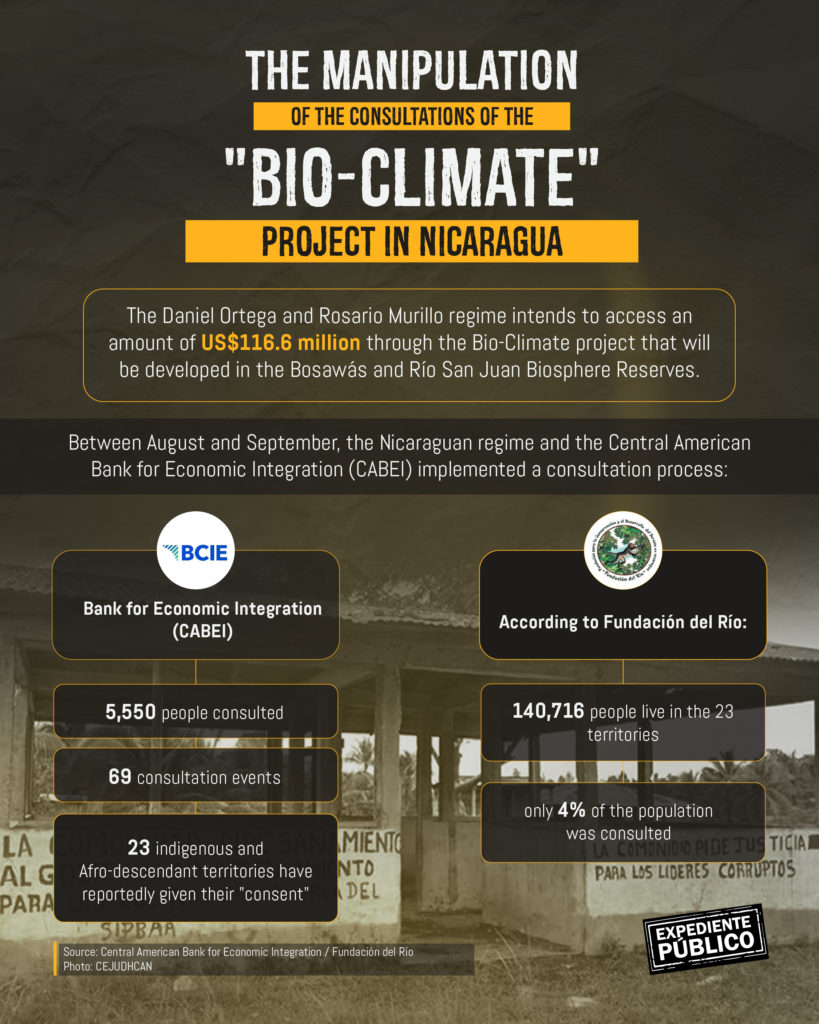
From July to September 2023, CABEI, together with institutions of the Nicaraguan regime, implemented an informed participatory consultation process within the region that would be influenced by the project.
Some 5,550 people participated in a total of 69 events, according to the information published.
Residents suggested that project documentation should be disseminated in the local languages in addition to Spanish.
Colonos remain in the region
Juan Carlos Ocampo, the founder and coordinator of Prilaka, a social movement in defense of invaded indigenous communities, told Expediente Público that there is a “high risk” behind this project.
The risk is identified as conditions under which the Colonos would “remain permanently” in Indigenous and Afro-descendant territories.
“The project seeks to invest resources in the presence of Colonos, not in clear land titles, not in eviction, and to legalize violations of the communities’ rights,” Ocampo warned.
Also of interest: Etnocidio en el Caribe de Nicaragua, un problema de voluntad política [Ethnocide in the Nicaraguan Caribbean region: a problem of political will]
The IRM also considers that “due diligence” was not employed in evaluating the impact that this peaceful cohabitation agreement would have on indigenous communities.
There has been no analysis of potential compensation for losing access to land and resources caused by some of the Colonos who will receive benefits under Bio-CLIMA.
“The project includes no conditions requiring respect for the rights of the communities,” Ocampo notes.
Communities demand “clear titles”
The Center for Justice and International Law (Cejil) has repeatedly pointed out the lack of clear titles in the territories.
Bill 445, Communal Property Regime of the Indigenous Peoples and Ethnic Communities of the Autonomous Regions of the Caribbean Coast of Nicaragua and the Bocay, Coco, Indio and Maíz Rivers, guarantees self-determination for these populations.
The concept of clear title or disencumbrance, to which the legislation makes reference, obliges the State to legally and administratively resolve the status of third parties in indigenous territories.
“This stage has not been initiated; instead the State encourages the illegal invasion and illegal sale of indigenous lands,” states Ormar.
Colonos and third parties are appropriating the resources in the communities, the Cejil lawyer says.
See also: Oro y sangre en el Caribe de Nicaragua: riqueza minera en el conflicto indígenas-colonos [Blood and gold in the Nicaraguan Caribbean region: Mining wealth in the Indigenous–Colono conflict]
The illegal invasion, according to Ormar, is taking place “silently every day.” As the State views it, the Colonos are proceeding to “draw the borders of the territory where they are going to settle.”
“The communities have said and have raised their voices to say that a clear title process is required first (…) The communities have suffered all these murders and now the regime asks them to live with the killers of their own people and that should not be a solution,” Ruiz, of the Fundación del Río, stated.
Lobbying by the regime
The Green Climate Fund Board did not address the issue at its three-day meeting in October 2023. It will not be revisited until 2024.
As its representative, the regime sent Javier Gutiérrez, presidential secretary for climate change, to the meeting held in the city of Tbilisi, Georgia.
In spite of human rights violations, lack of transparency and fraudulent elections, the CABEI approved $3,247.5 million in funding for Nicaragua between 2009 and 2021, as documented by Expediente Público.

